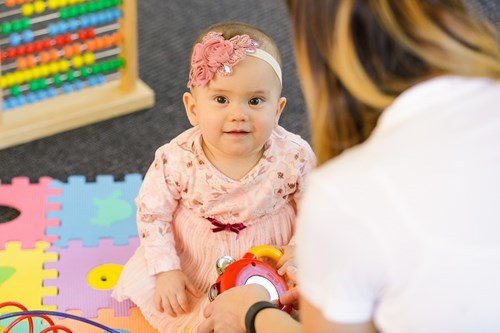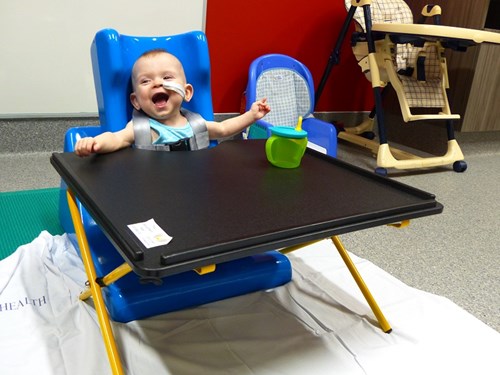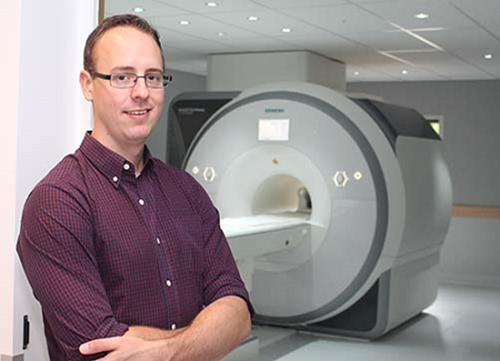

Here's how the power of fun makes healthier families
Greater Charitable Foundation is funding a world’s first father-focused obesity prevention program for preschool-aged children.
Becoming healthy role models for their children
Healthy Youngsters, Healthy Dads is helping to provide fathers with the knowledge, parenting skills and motivation to improve their health and become healthy role models for their children.
The most important lifestage
Lifelong habits are formed in the first five years, so it’s a vital stage to encourage healthy living. As part of the 'Healthy Youngsters, Healthy Dads' program, in partnership with The University of Newcastle, Dads and youngsters learn about eating more vegetables, water intake and the importance of reducing screen time and improving movement.
Here's how they’re learning together in regular practical sessions while forming a closer bond by having a great time.
UoN Research Impact
The researchers involved in the delivery of the Healthy Youngsters, Healthy Dads program have a proven track record in this field, having won major local, national and international awards for work in obesity prevention and engaging fathers. This program will support more than 200 fathers and 200 children from the Hunter Region over three years, with ongoing benefits for the entire family unit. This program will also seek to provide insights and recommendations for health practitioners and policymakers regarding engaging and promoting health in families.
What, Why, How
What
The Greater Charitable Foundation funding is supporting the world’s first father-focused obesity prevention program for preschool-aged children, providing fathers with the knowledge, parenting skills and motivation to improve their health and become healthy role models for their children.
Why
In Australia, 30% of children are overweight or obese, which increases their lifetime risk of many negative health concerns. Poor health behaviours are also becoming common early in life. For example, 76% of 2-4 year olds in Australia are not meeting physical activity and screen-time guidelines and 25% are developmentally vulnerable when they start school. Although fathers play a key role in improving their children’s health behaviours and reducing their risk of obesity, a recent review found that mothers represent 93% of parents in lifestyle programs for children.
How
Recent studies suggest that fathers’ weight profiles and parenting practices may be more influential than mothers’ for a child’s obesity risk. Yet, a recent review showed that Professor Philip Morgan’s team at the University of Newcastle is the only group internationally delivering father-focused programs to improve children’s physical activity and dietary behaviours. Over 3 years, Professor Morgan and his multi-disciplinary team will design, trial and translate the unique community based obesity prevention program for preschool-aged children.






